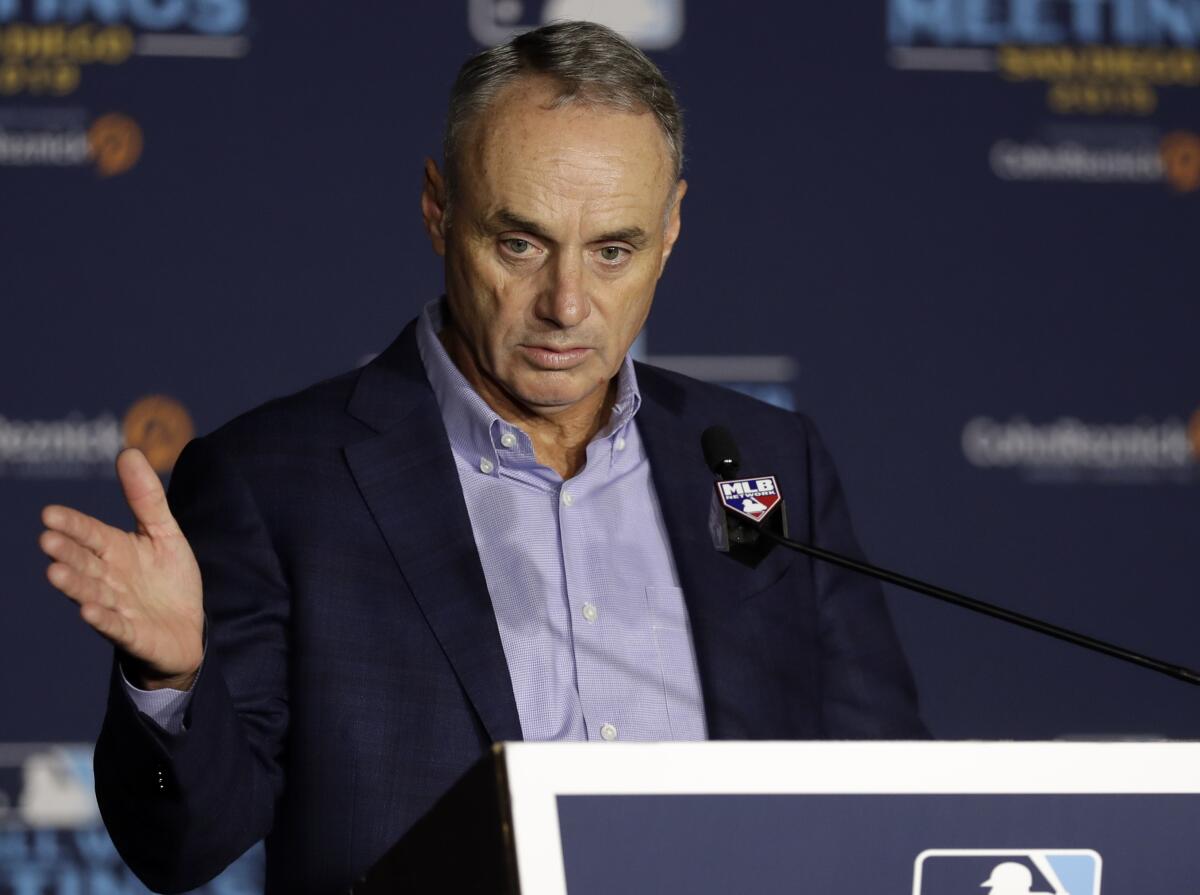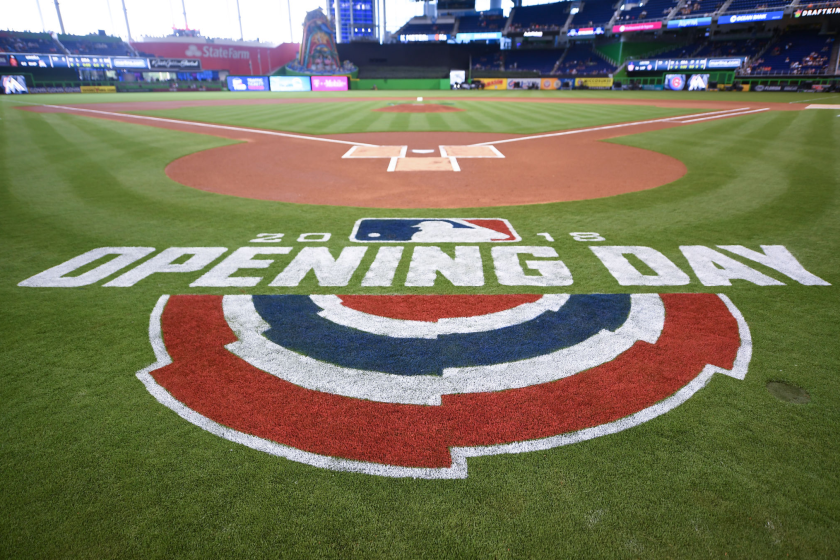MLB owners to reject players’ proposal, offer counter; Manfred: There will be a season

Rob Manfred made two points loud and clear Wednesday: There will be a major league season in 2020 amid the COVID-19 pandemic, and the owners are not backing off their insistence that players take an additional pay cut to play a longer season.
If the owners maintain those stances, and in the absence of a settlement, Manfred could use his authority as commissioner to impose a season of about 50 games, perhaps as soon as next week.
“We’re going to play baseball in 2020,” Manfred said on MLB Network. “One-hundred percent.”
Manfred said owners would reject the proposal made by players Tuesday and would “shortly” submit a counteroffer. He said the owners would make “a significant move in the players’ direction” in the hope that players would “get off the 100% salary demand.”
Are MLB players obligated to renegotiate salaries for games played in fan-free ballparks? Based on a Times document review, the answer appears to be no.
Under a March 26 agreement, owners agreed to pay players a prorated salary for any games played this year —that is, a player would get half his guaranteed salary if MLB played half a season — with the parties agreeing to negotiate about the “economic feasibility” of fan-free games.
Owners have insisted the union understood players would be required to take an additional pay cut, but no specific language in the agreement compels that, and players have remained united against doing so.
On Tuesday, the union proposed an 89-game schedule. Manfred dismissed that concept because a 16-team postseason would not start until mid-October. The owners want the season completed in October, he said, both because of promises made to national television partners and because the league’s medical advisors have warned about a possible second wave of the coronavirus come fall.
“I don’t want to be responsible for the additional health risk associated going later in the fall,” Manfred said, “and the risk to not completing the season and the disaster that would be.”
On Wednesday, even as Los Angeles County officials approved Dodger Stadium and other professional sports venues to hold games without fans, evidence continued to surface that the first wave of the coronavirus is far from over.
In California, where the bulk of cases are in Los Angeles County, coronavirus infections are not declining. In four states that account for one-third of MLB teams — California, Arizona. Florida and Texas — statistics do not show the virus receding.
Manfred told ESPN he would be “disappointed” if he had to impose a shorter season, but the March 26 agreement authorizes him to do so.
“If we have to, we’ll exercise that right,” he said.
MLB veteran David Segui is asking $4.5 million for his mid-renovation mansion in Phoenix complete with a swimming pool and tennis court.
The players’ offer Tuesday would cost the owners about $2.2 billion in salary, down from about $2.9 billion from the union’s previous 114-game proposal, each with the prorated salaries called for under a March 26 agreement.
The owners could settle at 70 games for about $1.76 billion, although they would argue additional postseason payments would put the league at risk of spending all their revenue on players this year, before accounting for other expenses. The alternative: a mandated season of about 50 games, at or below $1.4 billion.
The owners’ proposal Monday guaranteed about $1.45 billion, with a postseason bonus of another $200 million, the third consecutive offer with guarantees between $1 billion and $1.5 billion. Under the Monday offer, the owners would pay 75% of prorated pay, arguing they must pay less because they would lose money on every game fans were not allowed to attend.
The owners say their projected 2020 revenue is $2.75 billion, down from $9.73 billion last year, and under their offer 70% of this year’s revenue would go to players in salaries, bonuses and benefits. The players do not accept the owners’ financial representations and do not see why they should subsidize losses this year when, in the most recent years, revenues have risen as salaries have remained flat.
More to Read
Go beyond the scoreboard
Get the latest on L.A.'s teams in the daily Sports Report newsletter.
You may occasionally receive promotional content from the Los Angeles Times.












